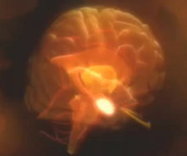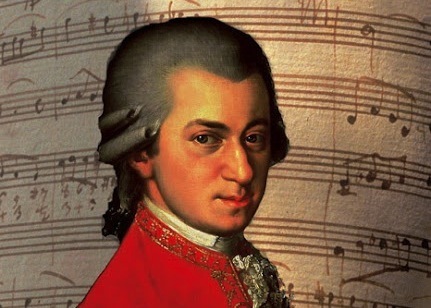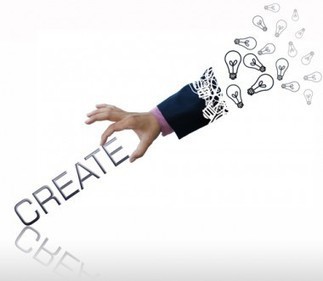 Your new post is loading...
 Your new post is loading...

|
Scooped by
Douglas Eby
|
Jon Hamm (TV series 'Mad Men') talks about his life following the death of his father when he was 20, including his recovery from depression. Hamm said, ‘I very much knew what the idea of permanence was by that point. I dropped out of school, moved into the basement of my older half-sister Julie’s house, enrolled in a local college and sank into depression. ~~~ Related site: Depression and Creativity
https://www.facebook.com/pages/Depression-and-Creativity/399254776768105
The first misconception is that innovation and creativity are the same things. The second misconception is that only a select group of people should drive a company's innovation activities. The third misconception is that innovation is all about "big bangs.
Via Karine Sabatier
Thumbnail descriptions of the thinking strategies commonly used by creative geniuses.
"How do creative geniuses generate so many alternatives and conjectures? Why are so many of their ideas so rich and varied? How do they produce the "blind" variations that lead to the original and novel? A growing cadre of scholars are offering evidence that one can characterize the way geniuses think. By studying the notebooks, correspondence, conversations and ideas of the world's greatest thinkers, they have teased out particular common thinking strategies and styles of thought that enabled geniuses to generate a prodigious variety of novel and original ideas."
Read more: http://www.creativitypost.com/create/how_geniuses_think
Via Kids Ahoy

|
Scooped by
Douglas Eby
|
Many artists and other creators have the experience of being inspired by something outside themselves - or someone. What is this inspiration? “Something really vital happens if we treat the things that give us the most joy and delight – like, say, our creative abilities – as gifts…” – Jericha Senyak

|
Scooped by
Douglas Eby
|
“Why don’t we get the best out of people? Sir Ken Robinson argues that it’s because we’ve been educated to become good workers, rather than creative thinkers. Students with restless minds and bodies — far from being cultivated for their energy and curiosity — are ignored or even stigmatized, with terrible consequences.”
The archetype of the shadow is depicted as: A shadowy figure, often the same sex as dreamer but inferior; a zombie or walking dead; a dark shape; an unseen ‘Thing’; someone or something we feel uneasy about or in some measure repelled by; drug addict; pervert; what is behind one in a dream; anything dark or threatening; sometimes a younger brother or sister; a junior colleague; a foreigner; a servant; a gypsy; a prostitute; a burglar; a sinister figure in the dark. Often there is an air of disrepute about the person, or of danger, but that is not always so. Sometimes it appears as simply an indistinct figure, or someone difficult to really see... ************ As I note in my post "Developing creativity – using our bad thoughts and dark side," Our shadow side is the multitude of personality qualities, instincts, urges and thoughts we may be offended by and actively ignore, deny or try to cover up. But this secret or unexplored inner landscape can be a source of personal growth and creative expression. http://talentdevelop.com/1183/developing-creativity-our-bad-thoughts-and-dark-side/
Via Bonnie Bright

|
Scooped by
Douglas Eby
|
Anxiety and the Amygdala The amygdala in the brain's limbic system has a role is in the processing of emotional reactions like anxiety or 'flight or fight' responses. Dealing with anxiety will help you express your creative talents more fully.

|
Scooped by
Douglas Eby
|
Recent research solves longstanding madness/genius paradox By Scott Barry Kaufman, Ph.D.... "There is only one difference between a madman and me. I am not mad." — Salvador Dali Must one risk getting lost in the sea of madness in order to reach the lone island of genius? While not necessarily mad, creative minds are often chaotic, untethered and unhinged. These thought processes enable a creative person to bring together lots of seemingly disparate streams of information in a unique way not immediately obvious to those grounded in "reality." Which creates an interesting paradox: How can creative geniuses simultaneously be mad and brilliant? ~~~ Related: Do We Need to be Crazy to be Creative? By Douglas Eby http://blogs.psychcentral.com/creative-mind/2010/06/do-we-need-to-be-crazy-to-be-creative/

|
Scooped by
Douglas Eby
|
Does creative inspiration come from our own teeming neurons, or is it a gift of a Muse? A passion to create may feel like something from beyond us, or from a spirit being, but maybe that is what anything from the not quite known inner depths of our psyche feels like.

|
Scooped by
Douglas Eby
|
Dealing with Your "Inner Critic" Self-criticism is a two-edged sword. By Dennis Palumbo... 'Among the majority of my creative patients — TV and film writers, directors, actors, etc., a primary concern is the struggle against their “inner critic.” By that I mean the persistent, sometimes harsh and almost always shaming “voice” that belittles or invalidates their work.' ... One of my related posts: Toxic Criticism and Developing Creativity By Douglas Eby http://blogs.psychcentral.com/creative-mind/2011/01/toxic-criticism-and-developing-creativity/

|
Scooped by
Douglas Eby
|
Debunking the Mozart Myth By Michele and Robert Root-Bernstein Certain myths about creative invention cripple people in all walks of life. Debunking those myths can unleash creativity overnight, as the experience of one young man in our class testifies.

|
Scooped by
Douglas Eby
|
Even people with exceptional talents can feel insecure, and many creative people struggle with doubt versus confidence in themselves or their abilities. “I really have that worry that I’ll wake up in the morning and think, ‘Oh God. I’m such a fraud, and they’ll find me out.’ I doubt myself a lot.” Those are comments by one of my favorite actors, Emily Blunt, who interestingly continued, “And maybe that’s a good thing..."
|

|
Scooped by
Douglas Eby
|
The Innovator's DNA book includes skills you can make use of being a disruptive innovator as an individual creator, as well as a business leader. One of the skills: "Associating refers to your ability to make connections across seemingly unrelated questions, problems, fields of study, or ideas. Associational thinkers draw on knowledge acquired through questioning, observing, experimenting and networking to link together unexpected combinations of problems, ideas and observations to produce new business ideas."
New York Daily NewsGoogle boosts 'Genius U.'New York Daily NewsIN A MATCH made in high tech heaven, Google is donating $10 million worth of office space to students enrolling in Cornell's to-be-built “genius school” on Roosevelt Island.
Via Ginger Lewman

|
Scooped by
Douglas Eby
|
Transmedia may have become an eyeroll-inducing buzzword in some circles but the ability to tell stories across platforms is a more relevant skill than ever. Writer and game designer Andrea Phillips takes us through some of the key lessons from her career in transmedia--lessons that are applicable to anyone with a story to tell.

|
Scooped by
Douglas Eby
|
Many multitalented people feel inspired to pursue multiple projects, often at the same time. One potential downside is physical and emotional burnout. Jennifer Westfeldt wrote, produced and acted in her movie “Friends With Kids”...she also directed the “two-year, round-the-clock endeavor” - “I must have been crazy to have donned so many hats,” Westfeldt said. “It made good sense for me to direct it, since I was involved in every aspect anyway. But I’m not sure I’d ever do it again.”

|
Scooped by
Douglas Eby
|
The Developing Talent newsletter. Contents: Research to Enhance Creativity; Renaissance Business system; Björk, and more.

|
Scooped by
Douglas Eby
|
Nope, even Michelangelo embraced constraints. But don't take it too far; process shouldn't be perfect. Here's why. In the May issue of Inc., a reader, Elaine Ellis, poses a great question: Is creativity stifled by organization or is it easier to be creative at a company that is extremely well run?" The way she phrases the question to some degree defines the answer. Of course it is easier to be creative in a "well run" company because it is easier to get things done and to experiment. Truly creative people don't baulk at every restraint; the best people I've ever worked with understood the necessity and found structure provoked them to do richer and more daring work.

|
Scooped by
Douglas Eby
|
Brain-calming Vs. Brainstorming By Think Jar Collective member Colin Funk In the early nineties a wide variety of arts-based approaches to creative problem solving and idea generation surfaced. One of the most popular forms that emerged was that of Improv Theatre. ... As leaders from all sectors today find themselves in uncharted waters, the demand for not only quantity, but quality of ideas is paramount. Just as potent as the many powerful techniques from the world of Improv Theatre, comes a more appropriate practice and inquiry tool for these times – Brain-calming. ... Brain-calming techniques are on the rise and can be seen routinely in many private and public organizations as meditation, learning partner walks, slow food dinners, conversation cafes, and journaling.

|
Scooped by
Douglas Eby
|
One of the enduring ideas about developing creativity is to that creative people such as writers need to “get out of their own way” so they can more freely express their inner experience. It is also potentially a core benefit of counseling or psychotherapy. But what does that really mean: getting out of our own way? Creativity coach and therapist Eric Maisel notes that it is a writer’s inner life, perhaps more than anything else, that matters for creative work.

|
Scooped by
Douglas Eby
|
Creative achievement at a high level, making a notable impact on the culture, seems to require talents, passion and obsession. Here is an article on some of that: "Where Does Passion Come From?" By Sam McNerney - Why are all great achievers willing to go through all the pain? Small genetic advantages might make the difference. ~~~ Isn't this a great image? It is one I added to the post "8 Ways to Turn Your Passion into Profits" By Ali Brown. - "As entrepreneurs, one of our most important duties is keeping our minds open to fresh moneymaking ideas. Holding regular brainstorm sessions can uncover fresh spins on our original ideas, and keep the passion alive—not only within ourselves, but for our customers and clients as well."
http://theinnerentrepreneur.com/8-ways-to-turn-your-passion-into-profits/

|
Scooped by
Douglas Eby
|
Jean Houston writes about the commitment and courage to create...reality relents and you are allowed to cross the threshold into new creation. “As creator and innovator, one is required to prove the commitment to one’s pursuits, the power of one’s will and courage to create. After a while reality relents and you are allowed to cross the threshold into new creation.”

|
Scooped by
Douglas Eby
|
It's tough to be creative day-in and day-out, but as a creative professional you may not have a choice. Use these 24 creativity quotes to inspire yourself.
|



 Your new post is loading...
Your new post is loading...































